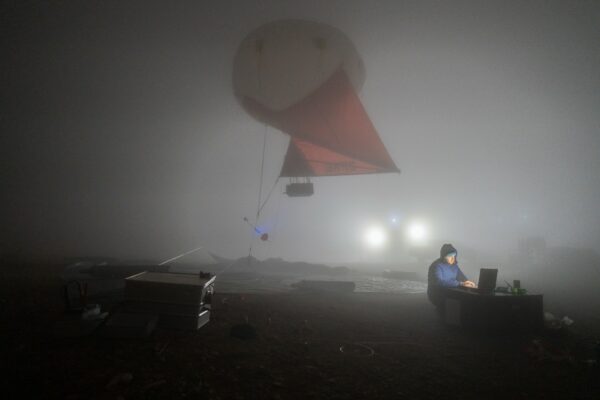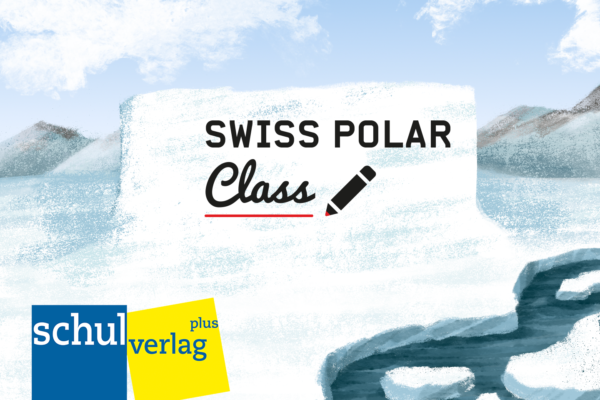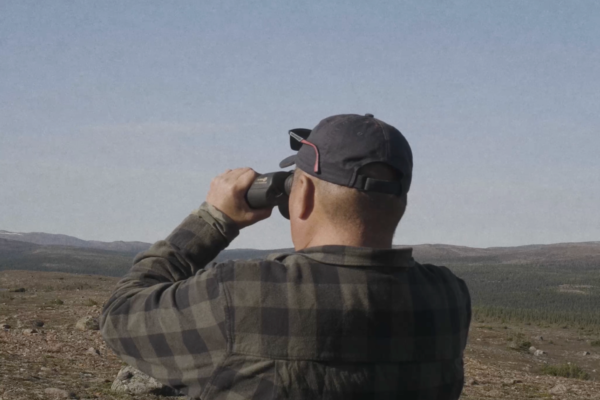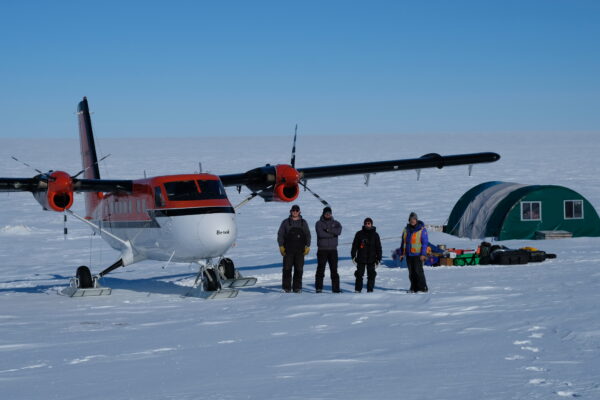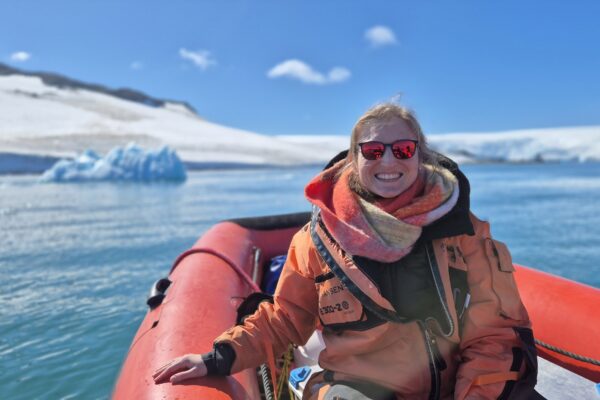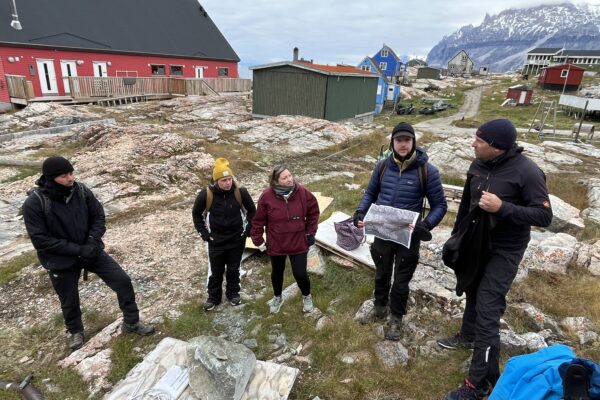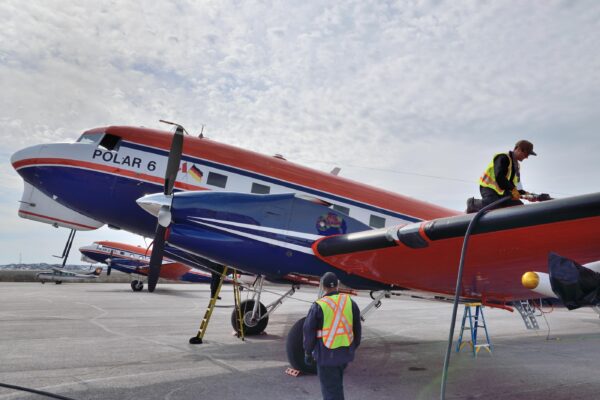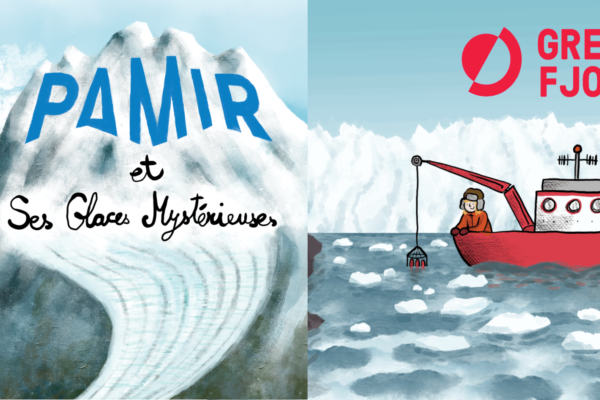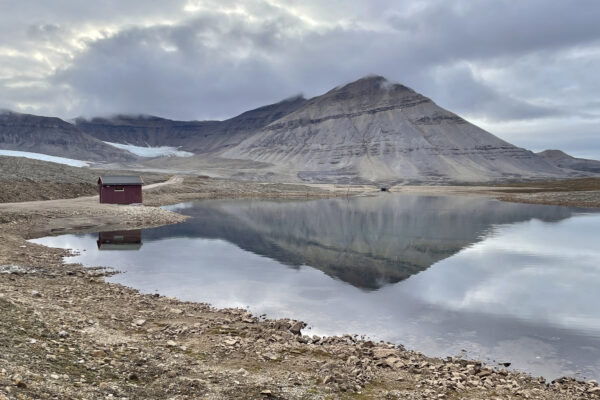Chapter 0: Why a flight computer? At the daring frontier of science, deep within the Extreme Environments Research Laboratory (a.k.a. EERL), we chase clouds and wrestle with aerosols in the wildest corners of the planet – the polar regions! Our secret weapon? A helium-filled tethered balloon that gracefully ascends into […]
Read MoreArticles by: Jelena Ristic
Three Poles, One World – the new collaboration between Swiss Polar Class and Schulverlag plus
This year, Swiss Polar Class collaborated with Schulverlag plus, a Swiss publisher specialised in educational material. Together, they developed a new learning programme focused on polar regions and their significance to the global climate. Three Poles, One World (Drei Pole, eine Welt – eine Zusammenarbeit mit Swiss Polar Class) aligns […]
Read MoreExploring human-environment relationships in Schefferville and Matimekush-Lac John – Andrea Bordoli
At the end of September 2025, two years after my last visit, I left Montréal and boarded a flight to my field site: the mining settlement of Schefferville and the adjacent Innu community of Matimekush-Lac John. The journey included brief stopovers in Québec City and Sept-Îles to collect additional passengers […]
Read MoreThe call for the 2026 Polar Access Fund is open
Co-funded by Swiss Polar Institute and BNP Paribas Swiss Foundation, the Polar Access Fund focuses on early-career researchers who plan an initial field trip to a polar region or a remote high-altitude area. The research conducted during the field trip must be part of an existing overarching project and be related to […]
Read MoreLiving the research: collaboration for sustainability among extreme Antarctic teams – Monika Maślikowska
As predicted, the journey plan to Antarctica was evolving as dynamically as the extreme team dynamics data we expected to uncover in such an extreme context. The volatile Antarctic environment seemed to have transcended into the polar mindset. However, after months of preparations and several days of anticipation in Punta […]
Read MoreIntegrated Risk Management training in Greenland
Between 8 and 12 September 2025, spatial planners from Avannaata Kommunia in Greenland participated in a week-long workshop dedicated to “Integrated Risk Management” of mass-movement processes. The event was organised in the framework of Swiss Polar Institute’s Konrad Steffen Grant. The core idea of the workshop was to share first-hand […]
Read MoreAccess to AWI-operated polar aircraft
In view of the MoU signed between Swiss Polar Institute (SPI) and the Alfred Wegener Institute (AWI) and the close collaborations between our respective scientific communities, we are pleased to relay the following information from AWI about access to their POLAR 5 and/or POLAR 6 aircraft for scientific operations. The […]
Read MoreFrom the Arctic fjords of Greenland to the high-mountain glaciers in the Pamir Mountains: Swiss Polar Class launches two new modules
In collaboration with SPI Flagship Initiatives GreenFjord and PAMIR, Swiss Polar Class published two new bilingual modules. Activity sheets, podcasts and videos offer an accessible and engaging introduction to interdisciplinary research in cryospheric sciences. Available in French and German, the content is tailored to primary classes (5H to 8H / […]
Read MoreTracking cyanobacteria through the greening of Svalbard’s lake shores – Camilla Capelli
Flying over the Kongsfjorden (Spitsbergen, Svalbard) is always an intense moment. This was my second mission for the project The greening of Arctic lake shores under the effect of climate change: a new hotspot for benthic cyanobacteria, yet every arrival feels new: the Arctic never looks the same twice. By […]
Read More